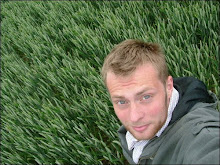What does storytelling do that stories in books can't?
I think what is happening when a story is told and heard is very different than when it is read. When told the teller is able to engage the listeners by their creation of the story, they can bring many aspects of non-verbal communication in, such as tone-of-voice, gesture, facial expression these all provide stimuli for the imagination. Most importantly the storyteller can modulate the delivery depending on how the listeners are reacting. Reading stories are good for us but by telling a story we bring it into the social domain and increase the usefulness of the experience.
One reason for this is that we think in story terms anyway and often socially we are telling each other stories, the everyday kind, what’s happening to us, our successes and achievements. By listening to stories we understand a lot about people, our imagination is stimulated and we can think more flexibly and creatively and we also learn how to tell stories by listening, and that is an important social skill. Reading fiction can help to develop social and cognitive skills in children such as language and empathy. Hearing stories can help children not only become more interested in reading but also it directly develops important interpersonal skills particularly speaking and listening.
One reason for this is that we think in story terms anyway and often socially we are telling each other stories, the everyday kind, what’s happening to us, our successes and achievements. By listening to stories we understand a lot about people, our imagination is stimulated and we can think more flexibly and creatively and we also learn how to tell stories by listening, and that is an important social skill. Reading fiction can help to develop social and cognitive skills in children such as language and empathy. Hearing stories can help children not only become more interested in reading but also it directly develops important interpersonal skills particularly speaking and listening.
How does storytelling benefit us, as children and as adults?
I think storytelling is one of the most beneficial activities human being can engage in but the evidence to support such a claim is limited. We know stories can certainly develop language and other cognitive skills. Stories also just inform us about the world around us, our history (or hi ’story’), they tell us what is socially valued, what’s good, bad, moral and so on. Basically they tell us about life. They are powerful things and can be abused as well. As a psychologist, I am most interested in how stories develop social and emotional skills, to understand feeling, to get in touch with them and learn how to deal with them, they help with motivation and in getting on with others.
For children stories really help us develop the key skills of what we call emotional literacy. For adults they too are very important. Many people are drawn to stories in drama on TV or film or in reading fiction. Keith Oatley, a leading psychologist in the study of emotions, feels that is because they help us attune with emotions. Being involved in a story is like a work-out at the gym for our emotional mind. However, many adults have not had the experience of listening to a good story well told and dismiss it as something for children. They are missing a wonderful experience.
Do you need special training to become a storyteller?
As an art form storytelling is one that is relatively easy to learn. It is a natural capacity and can be developed through practise. It’s not about learning how to do voices or anything like that, more about finding a style that works for you. Much can be learned through listening and watching people tell stories especially skilled and professional tellers. If someone is really interested in storytelling and especially performance storytelling then doing some training is certainly recommended and many storytellers offer training. I think most people can learn the basics of storytelling easily and find ways to use them at home or work. To become a professional storyteller needs a lot of study and isn’t for everyone.
What does "happily ever after" really mean?
Great question. Its major function is to say simply that’s the end of the story – all the issues are now resolved and it is over. Like ‘Once upon a time’ which starts a story, the phrase marks out the boundaries of the story world. It is, of course, symbolic rather than literal. Jon Kabot-Zinn felt its really meaning was almost the opposite to ‘ever after’- rather it refers to happiness in the here and now, the present – and of course the present moment is the eternal moment. I liked that! I also think there is another symbolic meaning in fairy tales for often these stories are about growing up. When the hero or heroine marries and receives untold riches it is really saying they have had an experience which has taken them to maturity and they are now able to live as mature adults. This is why many fairy stories send optimistic messages, even the least favoured smallest child can grow up to succeed.
Do you have an all-time favourite story to hear, or tell?
I don’t know about an all-time favourite but certainly a story that has obsessed me for the last few years is the ancient Indian story of King Vikram and a corpse he is fated to carry. However, his burden is inhabited by a spirit who instructs him in wisdom in living through a series of tantalising riddling stories. I have been tracking down different version of this story for year. I also tell it and am trying to rewrite my own version and I’m always finding new things in it.

No comments:
Post a Comment